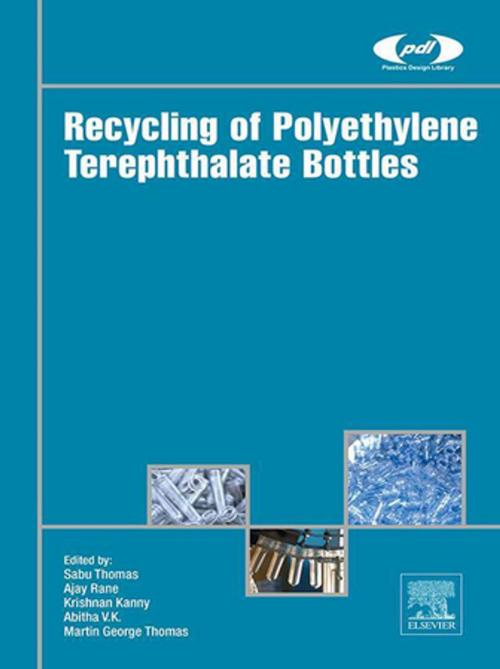Recycling of Polyethylene Terephthalate Bottles
Nonfiction, Science & Nature, Technology, Textiles & Polymers, Material Science| Author: | ISBN: | 9780323509671 | |
| Publisher: | Elsevier Science | Publication: | October 29, 2018 |
| Imprint: | William Andrew | Language: | English |
| Author: | |
| ISBN: | 9780323509671 |
| Publisher: | Elsevier Science |
| Publication: | October 29, 2018 |
| Imprint: | William Andrew |
| Language: | English |
Recycling of Polyethylene Terephthalate Bottles provides an overview of PET chemistry, highlighting the main degradation, depolymerization processes and pathways of PET, along with the applications of recycled monomers derived from PET waste. The latest methodologies of recycling and feedstock recovery are covered, providing critical foundational information. In addition, the book discusses a range of established methods of polymer recycling, with an emphasis on real world industrial case studies and the latest academic research. Users will find in-depth lifecycle and cost analysis of each waste management method, comparing the suitability and feasibility of each to support the decision -making process.
Polyethylene Terephthalate (PET) is the most recycled plastic in the world, but still represents a significant amount of landfill waste. This book presents an update on new regulations, providing recommendations for new opportunities in this area, including new processing methods and applications for recycled PET.
- Features a comprehensive introduction to the waste management of PET bottles, from regulatory concerns, to the range of different methods of materials recovery
- Enables practitioners to choose the most efficient and effective waste management process
- Includes detailed lifecycle and cost analysis information
- Compares traditional thermal recycling methods with more recently developed monomer recovery and chemical recycling methods
Recycling of Polyethylene Terephthalate Bottles provides an overview of PET chemistry, highlighting the main degradation, depolymerization processes and pathways of PET, along with the applications of recycled monomers derived from PET waste. The latest methodologies of recycling and feedstock recovery are covered, providing critical foundational information. In addition, the book discusses a range of established methods of polymer recycling, with an emphasis on real world industrial case studies and the latest academic research. Users will find in-depth lifecycle and cost analysis of each waste management method, comparing the suitability and feasibility of each to support the decision -making process.
Polyethylene Terephthalate (PET) is the most recycled plastic in the world, but still represents a significant amount of landfill waste. This book presents an update on new regulations, providing recommendations for new opportunities in this area, including new processing methods and applications for recycled PET.
- Features a comprehensive introduction to the waste management of PET bottles, from regulatory concerns, to the range of different methods of materials recovery
- Enables practitioners to choose the most efficient and effective waste management process
- Includes detailed lifecycle and cost analysis information
- Compares traditional thermal recycling methods with more recently developed monomer recovery and chemical recycling methods















